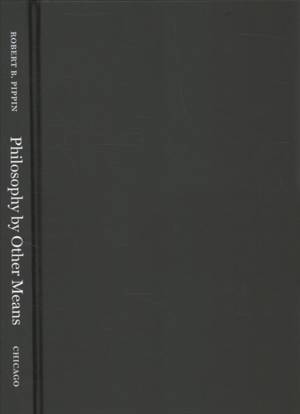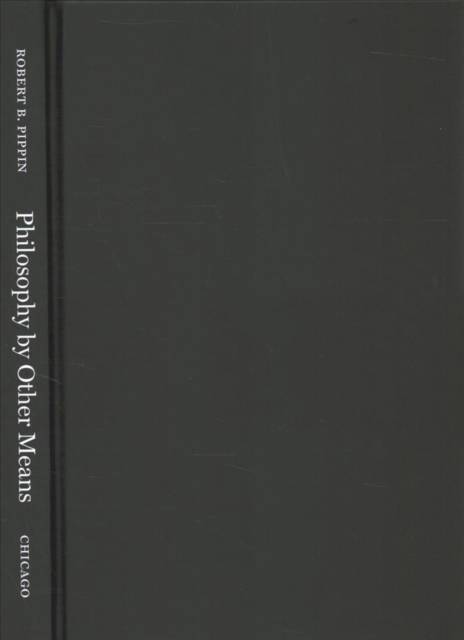
- Retrait gratuit dans votre magasin Club
- 7.000.000 titres dans notre catalogue
- Payer en toute sécurité
- Toujours un magasin près de chez vous
- Retrait gratuit dans votre magasin Club
- 7.000.000 titres dans notre catalogue
- Payer en toute sécurité
- Toujours un magasin près de chez vous
Philosophy by Other Means
The Arts in Philosophy and Philosophy in the Arts
Robert B Pippin
Livre relié | Anglais
174,95 €
+ 349 points
Description
Throughout his career, Robert B. Pippin has examined the relationship between philosophy and the arts. With his writings on film, literature, and visual modernism, he has shown that there are aesthetic objects that cannot be properly understood unless we acknowledge and reflect on the philosophical concerns that are integral to their meaning. His latest book, Philosophy by Other Means, extends this trajectory, offering a collection of essays that present profound considerations of philosophical issues in aesthetics alongside close readings of novels by Henry James, Marcel Proust, and J. M. Coetzee. The arts hold a range of values and ambitions, offering beauty, playfulness, and craftsmanship while deepening our mythologies and enriching the human experience. Some works take on philosophical ambitions, contributing to philosophy in ways that transcend the discipline's traditional analytic and discursive forms. Pippin's claim is twofold: criticism properly understood often requires a form of philosophical reflection, and philosophy is impoverished if it is not informed by critical attention to aesthetic objects. In the first part of the book, he examines how philosophers like Kant, Hegel, and Adorno have considered the relationship between art and philosophy. The second part of the book offers an exploration of how individual artworks might be considered forms of philosophical reflection. Pippin demonstrates the importance of practicing philosophical criticism and shows how the arts can provide key insights that are out of reach for philosophy, at least as traditionally understood.
Spécifications
Parties prenantes
- Auteur(s) :
- Editeur:
Contenu
- Nombre de pages :
- 304
- Langue:
- Anglais
Caractéristiques
- EAN:
- 9780226770772
- Date de parution :
- 11-05-21
- Format:
- Livre relié
- Format numérique:
- Genaaid
- Dimensions :
- 152 mm x 229 mm
- Poids :
- 544 g







